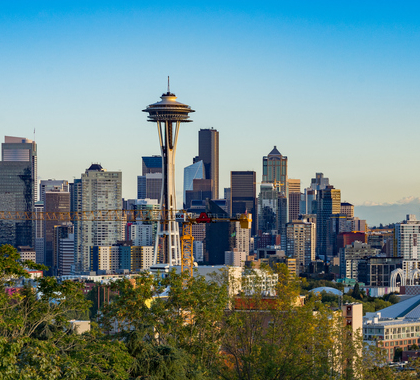In May, the Seattle City Council unanimously voted to tax large, local businesses — such as Amazon, Microsoft, and Starbucks — $275 per employee annually.
Thankfully, the City Council recently reversed course and voted to repeal the so-called “homeless tax” after experiencing extreme backlash from citizens and businesses. Seattle Mayor Jenny Durkan is expected to sign the repeal bill.
The tax would have gone into effect in 2019 and would have applied to all businesses with at least $20 million in gross annual revenue. According to the council, the tax would “only” apply to 3 percent of Seattle businesses and would likely add $48 million to the city’s efforts to fight homelessness.
Seattle, with a homeless population of 115,000, already spends $200 million per year on homelessness. No doubt, this onerous tax would have jeopardized Seattle’s entire economy — and only so that lawmakers could throw more money at a problem they have utterly failed to solve after billions of dollars spent and decades of trying in vain.
Home to a thriving tech economy, Seattle seems intent on overtaxing and overregulating the very businesses that sparked the city’s renewal just a few decades ago. Like the fable about the goose that laid the golden egg, Seattle is in danger of driving out the businesses that provide jobs and city tax revenue — the very things needed to continue generating the economic vigor that prevents homelessness!
The ill-fated homeless tax is just the latest policy intended to “benefit” poor Seattleites. In 2015, Seattle lawmakers implemented a series of minimum wage hikes so low-income workers would be guaranteed a “living wage.” In 2018, Seattle’s minimum wage reached $15, almost double the national minimum wage. Unfortunately, the wage hikes have done more harm than good.
As of May 2018, Seattle’s unemployment rate stands at 3.7 percent — the same rate recorded in April 2017. Yet during this period, the national unemployment rate dipped from 4.4 percent to 3.8 percent, and Washington State’s unemployment rate fell from 4.8 percent to 4.7 percent. Seattle’s excessively high minimum wage is already imperiling job creation in a robust job market.
Even more troubling, the minimum wage hike cost Seattle’s low-income workers about $125 per month in reduced working hours, according to a University of Washington report. No wonder Seattle’s homeless population is growing — the City Council is killing jobs and cutting hours for low-income workers!
Apparently, Seattle’s anti-business mindset has metastasized across the Evergreen State. In March 2018, Gov. Jay Inslee (D–Wash.) signed a bill that attempts to preserve forced union dues and prevent Right to Work legislation, ignoring the upcoming Supreme Court ruling in “Janus v. AFSCME.”
Like the Seattle City Council, the Washington State Legislature appears determined to drive business to more friendly environments. It should come as no surprise then that in 2017, Boeing — which was founded in Seattle in 1916 — built a new assembly line in South Carolina, one of 28 Right to Work states. The 265-acre site, which builds Boeing’s 787 Dreamliner aircraft, employs nearly 7,000 workers and contractors. Seattleites, is it possible Boeing executives bypassed its own backyard to build a new manufacturing facility because your city is hostile to large businesses?
Seattle policymakers should stop punishing businesses with excessive taxation and regulation. This short-sighted philosophy will certainly undermine entrepreneurship, hinder economic innovation, and drive away existing businesses.
Instead of implementing policies that stifle job creation with high wages and union protectionism, lawmakers should embrace free-market policies that will increase growth and economy opportunities.
[Originally Published at The Daily Caller]





